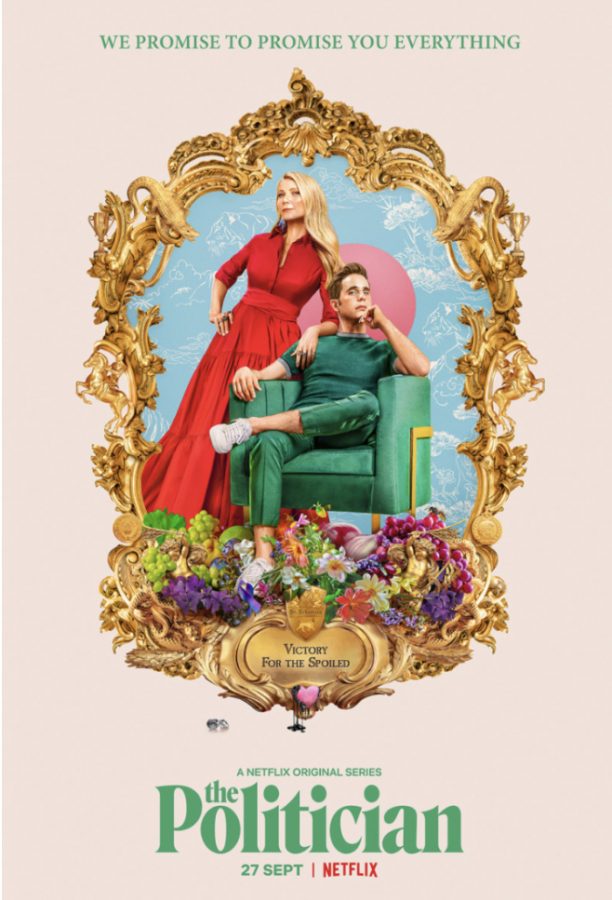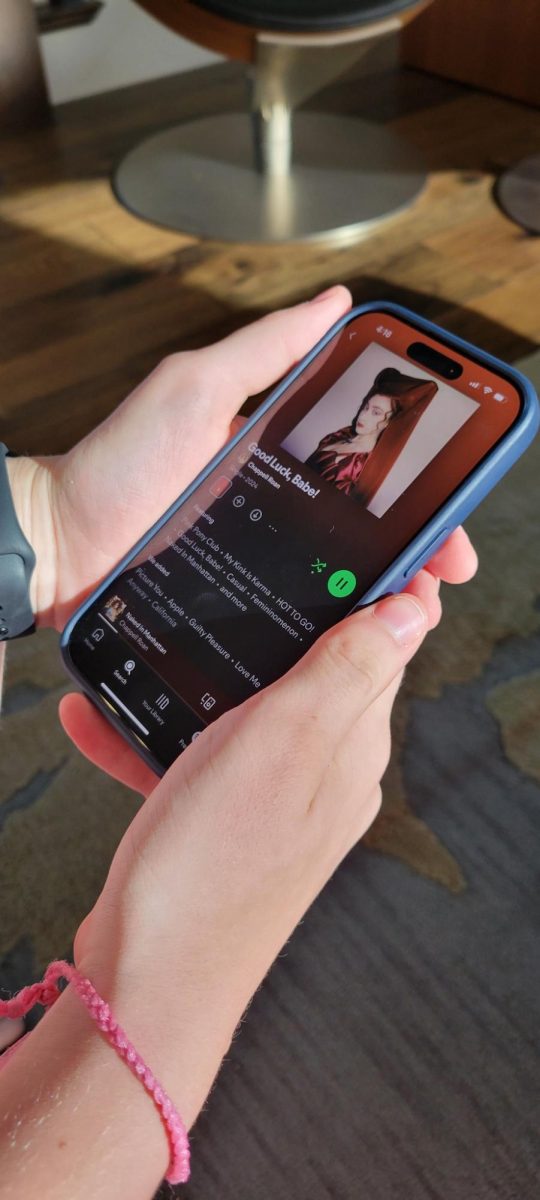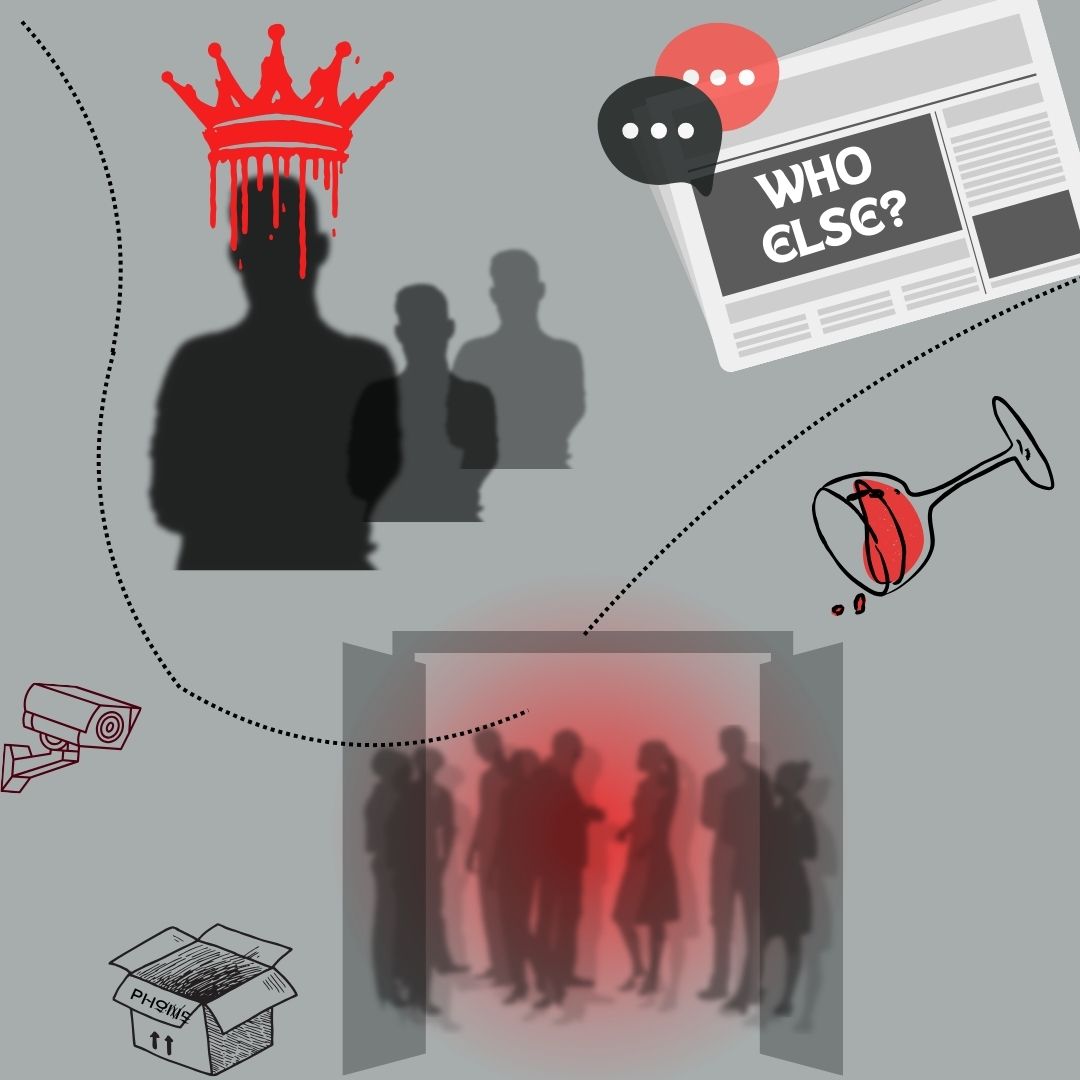A recent Netflix release, “The Politician”, is the newest series by renowned writer and director Ryan Murphy. In an interesting satirical style, the show plays with complicated ideas set to a colorful backdrop of the nations’ most affluent and troubled adolescents.
The show centers around Payton Hobart (Ben Platt; Dear Evan Hansen), a wealthy high school senior who has spent his entire life studying politics in order to pursue his goal of winning the nation’s presidency. The season watches his campaign for student body president of his Santa Barbara high school play out, yet in true Murphy style, it transcends the reality of a true high school political race.
Amid assassination attempts from his political competitors and murder accusations fueled by money, Platt portrays a young politician grappling with heavy questions of authenticity, sexuality, and insanity.
Alongside Platt is the show’s supporting cast, a mix of prestigious actors and refreshing newcomers. Gwenyth Paltrow (Shakespeare in Love, Emma) plays his mother, with Jessica Lange (American Horror Story, Blue Sky) as an antagonist. Zoey Deutch (Set It Up), Lucy Boynton (Bohemian Rhapsody), David Corenswet, Julia Schlaepfer, Laura Dreyfuss (Glee), and Theo Germaine flesh out Payton’s high school gallery of supporters and enemies.
The acting is, as can be expected from a cast of this caliber, incredibly executed. Paltrow plays Georgina Hobart with both a chilling elegance and a mysterious warmth, masterfully utilizing the character’s body language and intonation. Platt, playing a role outside of his usual skillset, occasionally borders on overacting, yet overall delivers a carefully impassioned portrayal of a young man on the edge.
It can be easily deduced that the show is a political satire at some level. Most of the political characters throughout the show are parodies, routinely portraying an almost comically small amount of emotion or genuine feeling. A centric phrase of the show, spoken by Payton’s dead love interest River (Corenswet), went, “You don’t have to be a good person if you do good things.” This arguably defines the root of the show’s commentary and explains the actions of many characters throughout the plot, their tries at “goodness” merely thinly veiled attempts at political gain.
While the strength of the political commentary and satire cannot be questioned, at times it is muddied by the somewhat messy and disoriented plot. As is typical of many Ryan Murphy productions, the story of “The Politician” is going a million miles an hour in every direction possible. The cast is unnecessarily extensive and creates confusingly irrelevant subplots which pull away from the show’s main themes and message.
Many plot points come up that are so strangely disconnected from the storyline that they seem to be nothing more than a desperate attempt to hold the viewer’s attention, providing “shock value” before quietly dissolving into the background. Chaos caused by these subplots makes the show’s 8 episodes feel like an eternity; a million little side stories vying for importance.
With the main storyline of Payton’s campaign for student body president being repeatedly trampled by inconsequential issues, the satirical nature is often blurred into a confusing message by this messiness which, in turn, muddies the waters around the political commentary.
Despite the disorganization of the plot, the show is genuinely stunning from a visual production standpoint. The production design by Jamie Walker McCall and art direction by Sarah M. Pott obviously dipped into Netflix’s large pool of money and resources to create a vibrant aesthetic in which to portray the elite society of Santa Barbara. McCall cited the oversaturated, heavily-glossed films of Wes Anderson as one of his main inspirations for the project, and the influence is clear.
Bright colors abound throughout the show to the point where the vibrancy radiates an uneasy feeling of fakeness, purposefully developed by Murphy to feel almost like the audience is peeking in through the window of a doll house. Even the characters themselves operate in this setting with a sense of suppressed insanity; their dark unhappiness hidden behind opulent and vivid backgrounds.
The lavish aesthetic and consequential uneasy vibe are further developed by the work of costume designers Lou Eyrich and Claire Parkinson. Affluence and discomfort are on full display in the Gucci suits students wear to school, the lavish gowns donned by Paltrow’s character, and the overall contrast of their outfits to a realistically dressed community. The wardrobe of the entire cast borders on cartoonish, further creating caricatures out of the characters in an effort to deepen the satirical nature and reality-adjacent feeling of the show.
While convoluted at times, the production value and intriguing satire make Ryan Murphy’s latest project different than most typical teenage flicks. Thriving in a dangerously bright plastic atmosphere, “The Politician” is vibrantly entertaining on the surface and uneasily chilling underneath.










